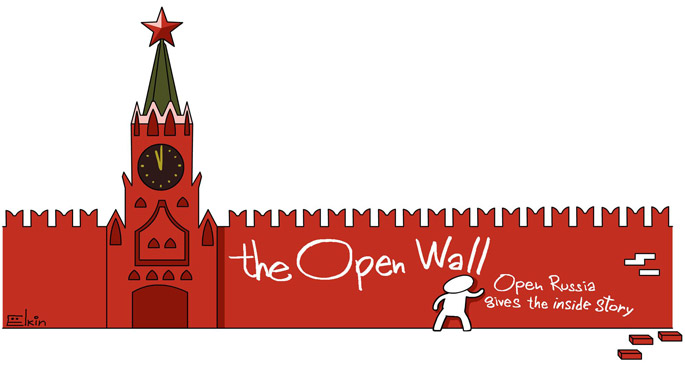The Bulldozer
The Bulldozer
Mikhail Lesin will be remembered for how he died. But better to remember how he lived.

Mikhail Lesin (1958 – 2015) was known as the “Bulldozer” for two reasons: he was combative in person, and he bulldozed independent Russian media into submission, depriving them of an independent voice. In recent days, there has been much talk about how he died, but for us (removing bricks from the Kremlin wall, one by one), all that speculation and gossip is nowhere near as interesting as how he lived, and what he left behind. It would make a good film; you could call it something like Dirty Grandpa …
In so many ways, Mikhail Lesin’s life is the story of post-Soviet Russia: the hijacking of a nascent democracy – however chaotic it might have been – by a corrupt elite who all knew each other; and its replacement with an authoritarian kleptocracy, kept together by propaganda. Lesin made his career out of it.
In the early 1990s, Lesin founded Video International, an advertising agency, which had exclusive advertising rights on NTV, at the time the most successful independent TV channel. That relationship between media and making money became his life.
In 1993 he moved to RIA Novosti press agency, rising to General Director, just in time for the presidential election of 1996, when the incumbent (and unpopular) Boris Yeltsin was in danger of losing to the communist Gennady Zyuganov. More than anybody, it was Lesin who understood what was then for Russia, a new way of campaigning, where slogans counted for more than policies. He came up with the catchy “Voice of the Heart,” “I believe, I do, I hope,” and “Save and Protect.” He also wrote Yeltsin’s weekly fireside chats on the radio – borrowed from American presidents.
Yeltsin won, which propelled Lesin even higher, in 1997, to the post of deputy chairman of VGTRK (the All Russia State Television and Radio Broadcasting Company), which had brought all state media under the control of one organisation.
Two years later, Lesin was appointed Minister of Press, Broadcasting and Mass Communications. This marked the beginning of his close relationship with Vladimir Putin, who had been anointed by Yeltsin as his successor, but was not expected to last long as prime minister. Lesin, however, came to the rescue, marshalling state media behind the newly manufactured politician, who came out on top in the presidential election of 2000.

Lesin set about consolidating his wealth and his power. He first merged his Video International with state-owned media companies, thereby making his fortune. Next, he attacked Vladimir Gusinky’s Media Most holding company, which had just bought NTV, the independent TV channel not afraid to criticise the newly-installed president. In a move that would be copied many times after that, Gusinsky was faced with a barrage of legal cases, and imprisoned. When he refused to hand over his company to Gazprom-Media, it was Lesin who persuaded him to do so, coming up with the ingenious Protocol No. 6, which gave businessmen immunity from prosecution, and a one-way ticket out of Russia, in return for selling their assets to the state at a knock-down price. Emasculating NTV was the beginning of the end for independent media in Russia.
Lesin’s final media masterstroke in 2005 was to come up with the idea for Russia Today (now RT), whose aim was to “establish a news channel that would counter CNN and the BBC with a Moscow spin. It’s been a long time since I was scared by the word propaganda. We need to promote Russia internationally. Otherwise, we’d just look like roaring bears on the prowl.”
Mikhail Lesin later moved to California.
Whatever spin you put on Mikhail Lesin’s career, it can only be seen as a parable. There is something quite obscene about the hypocrisy of the post-Soviet Russian elite, which trumpets a particularly nasty form of nationalism, but prefers not to live under the system that it beggars.
Mikhail Lesin’s legacy is this: in his Russia today – the Russia that he helped to build – it is considered acceptable to steal from the Russian people, feed them a pack of lies, then leave the country to fend for itself, while you swan around the globe on a superyacht.
It seems entirely appropriate that Mikhail Lesin leaves behind a son who is a Hollywood producer, and a daughter who works (in the US …) for RT – two sides of the same coin.




